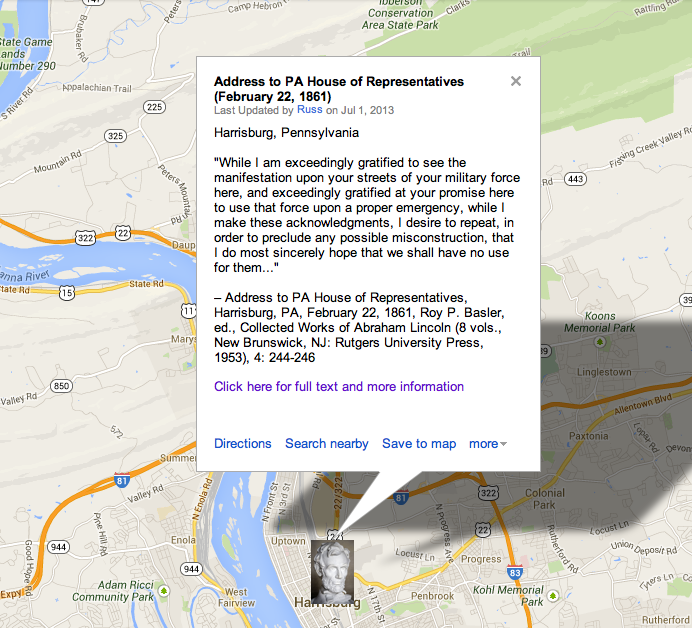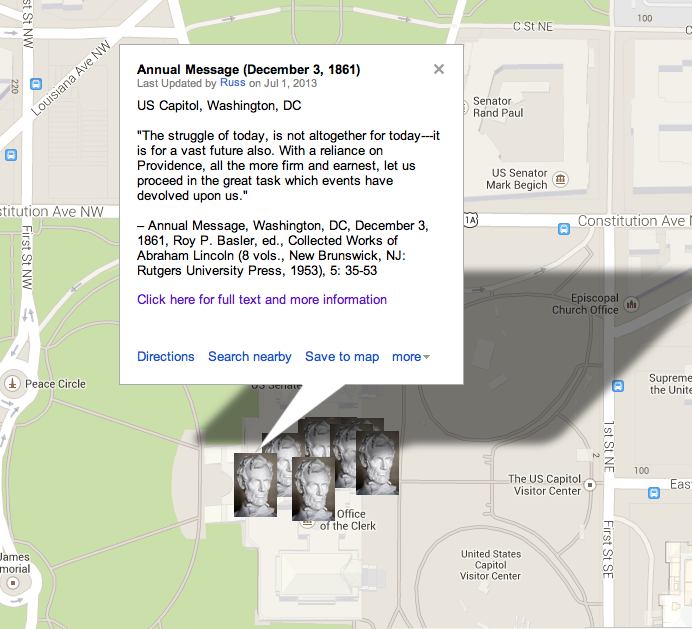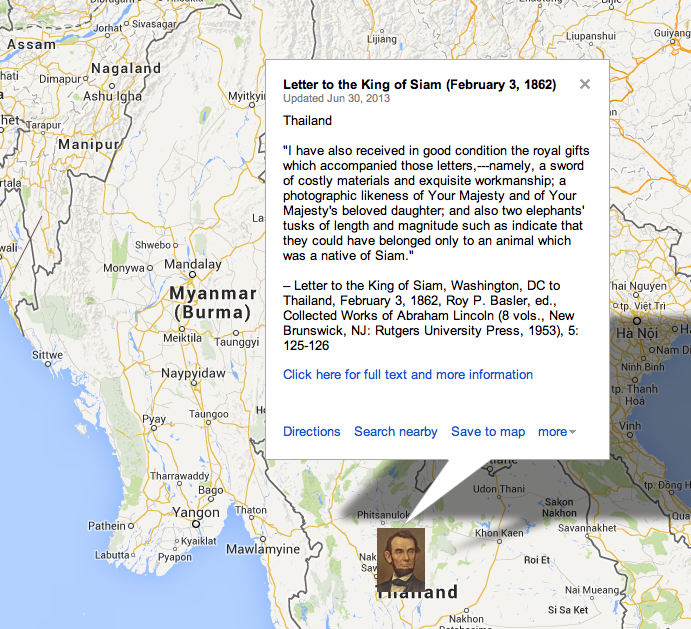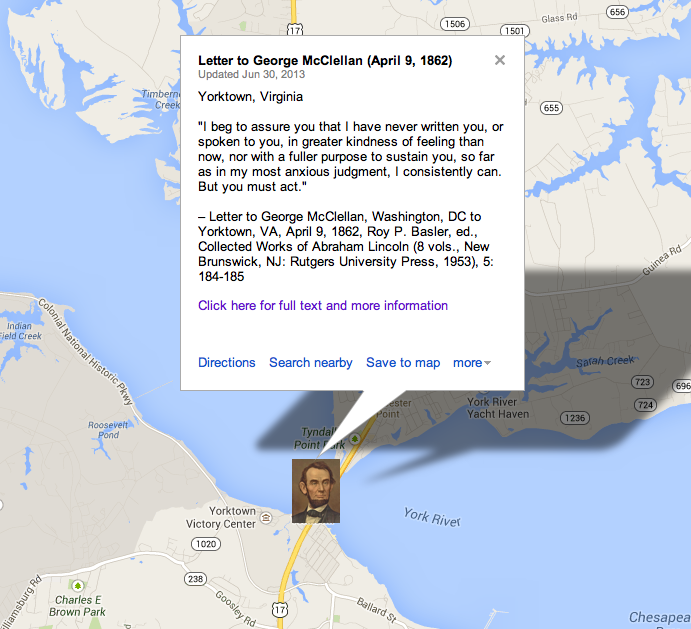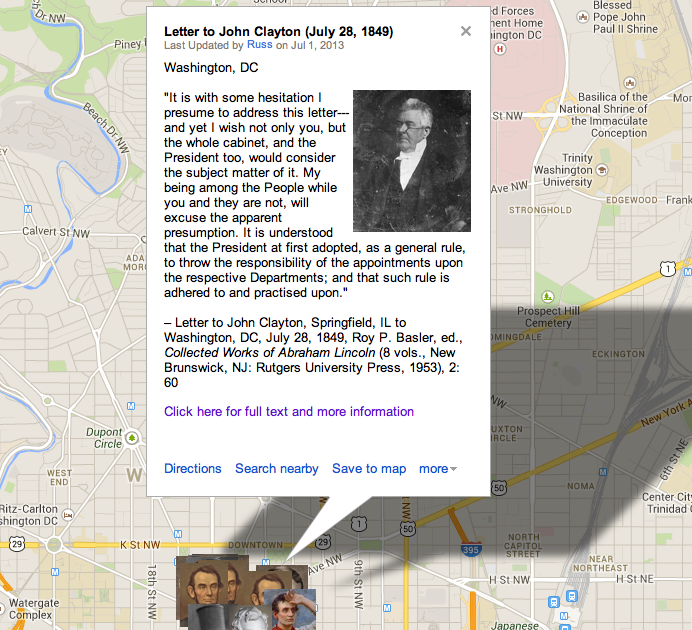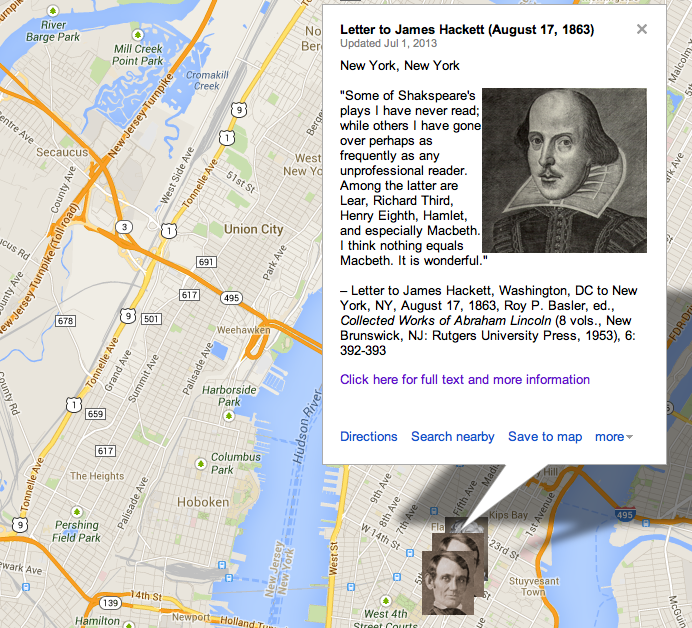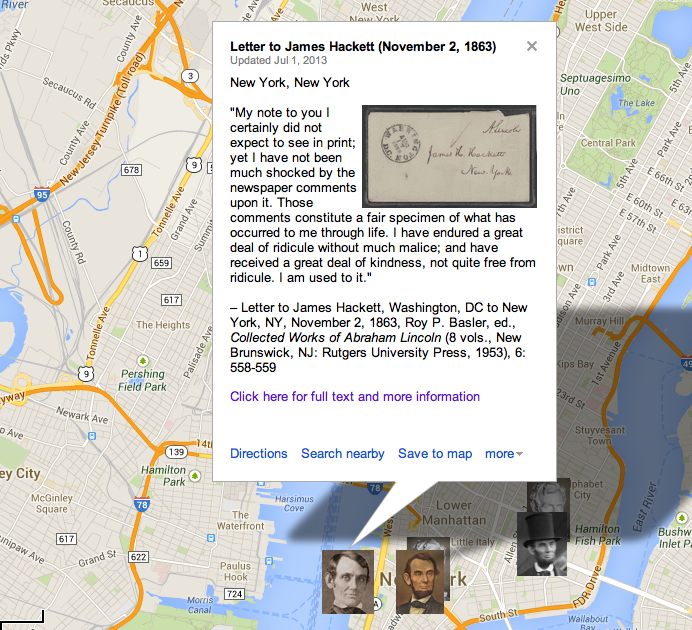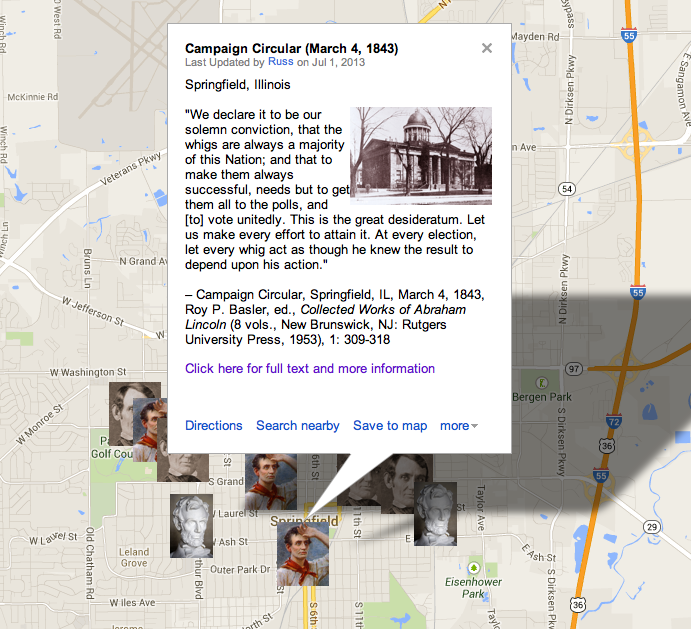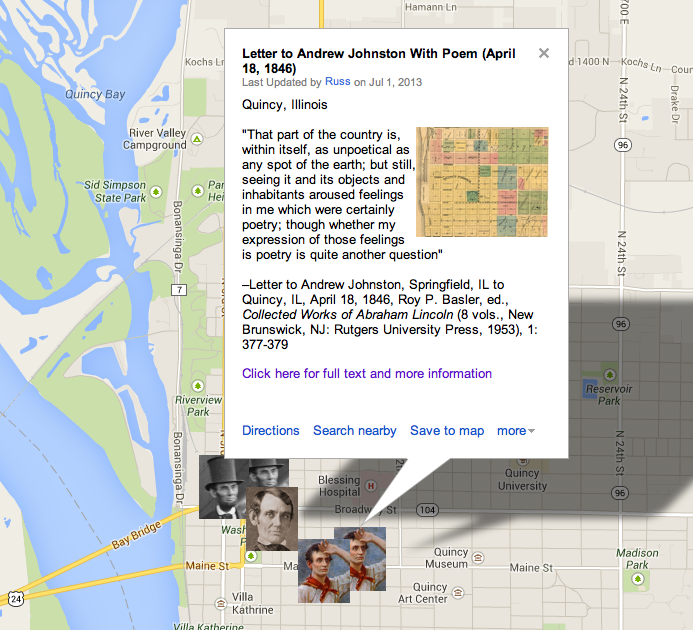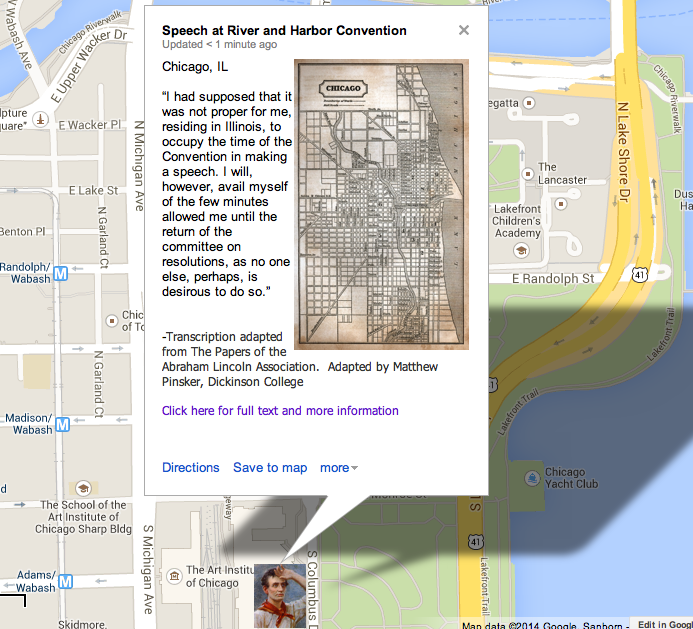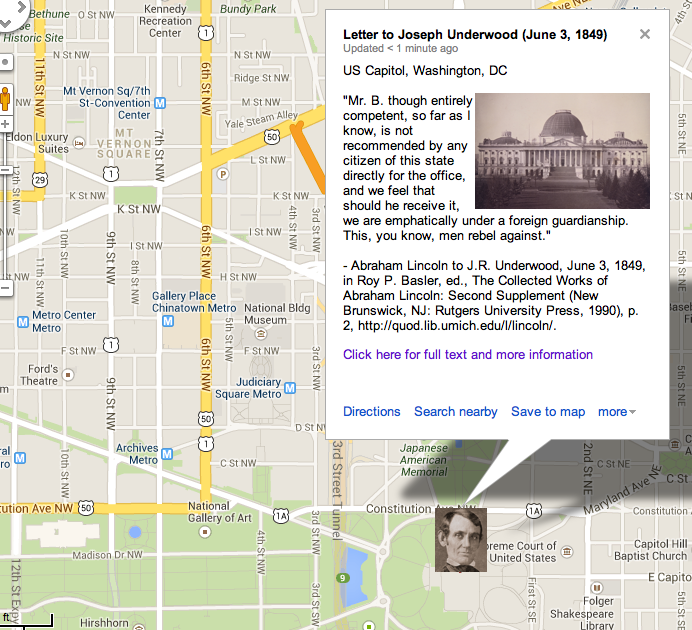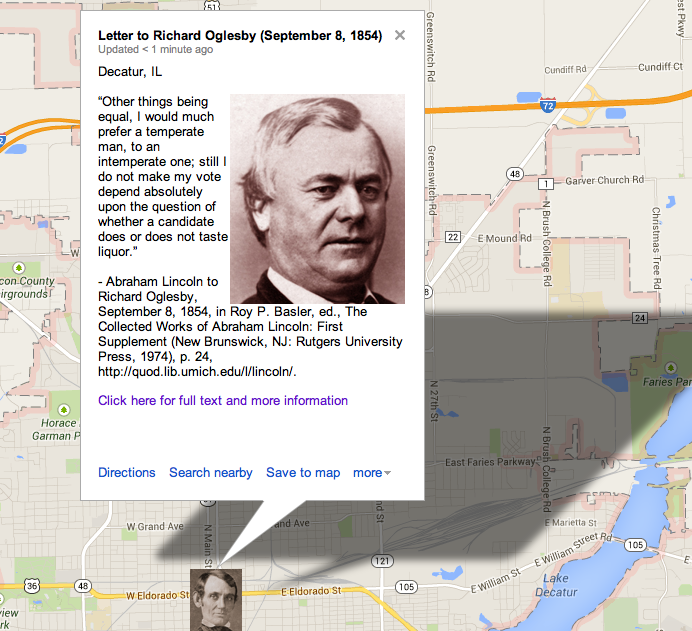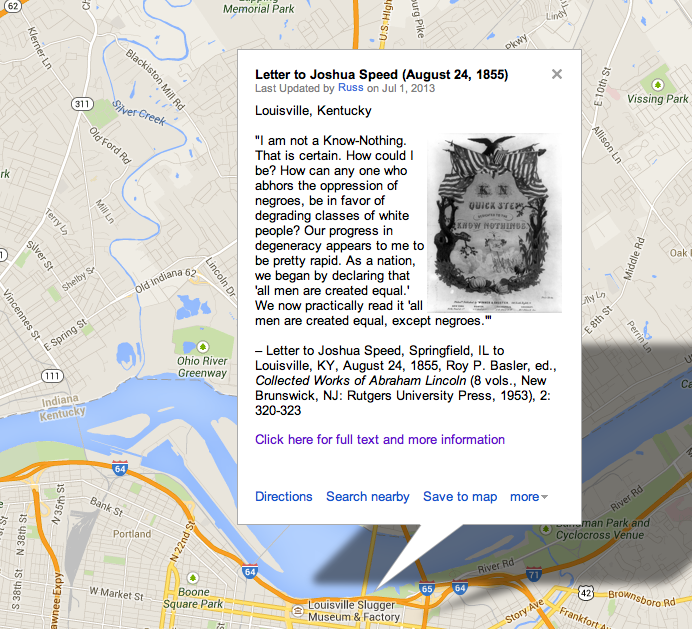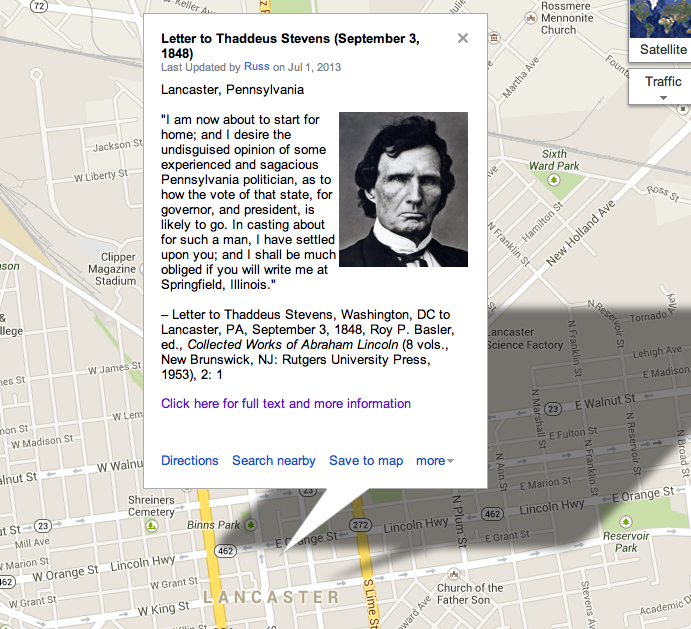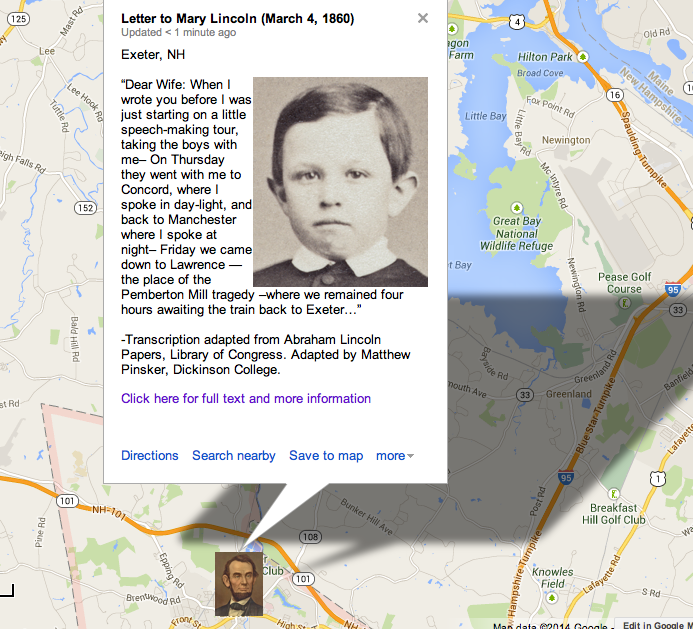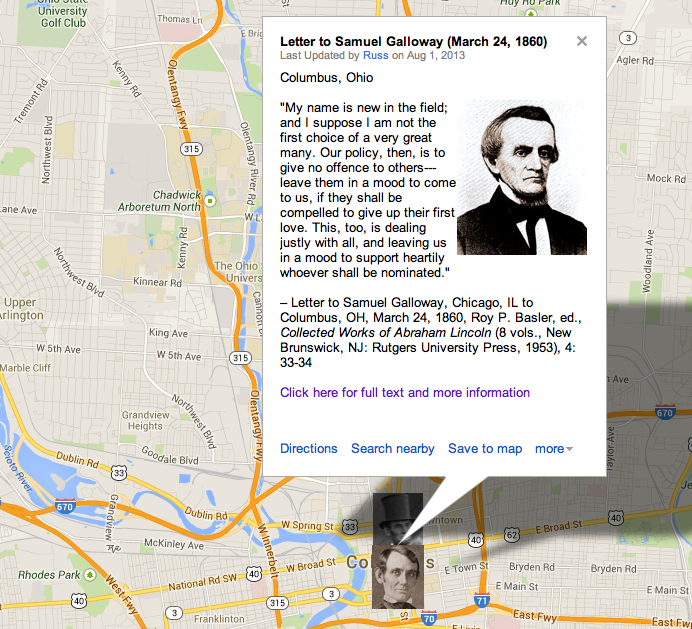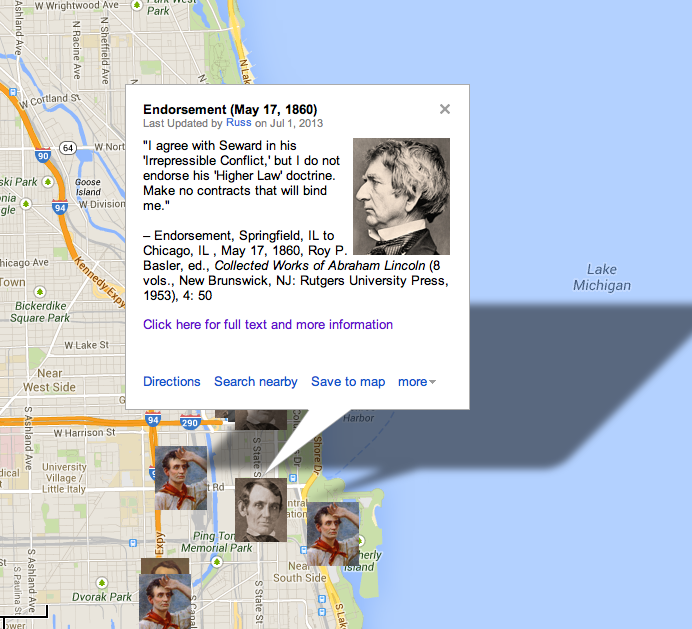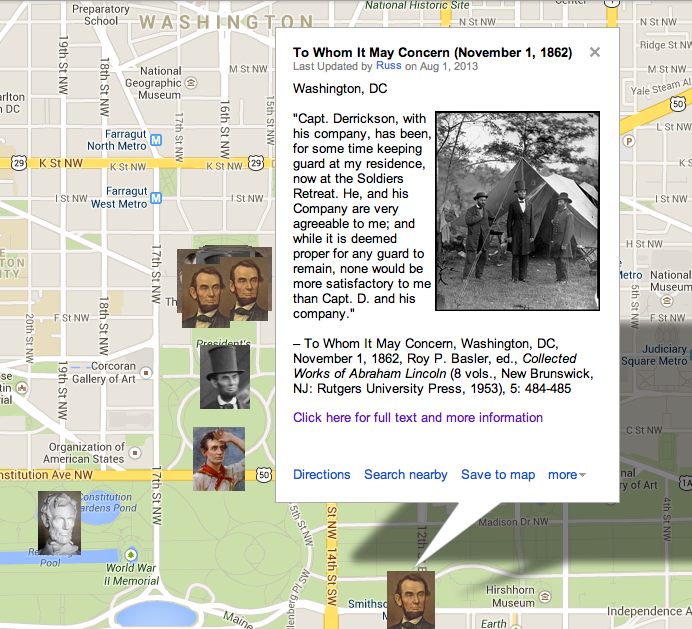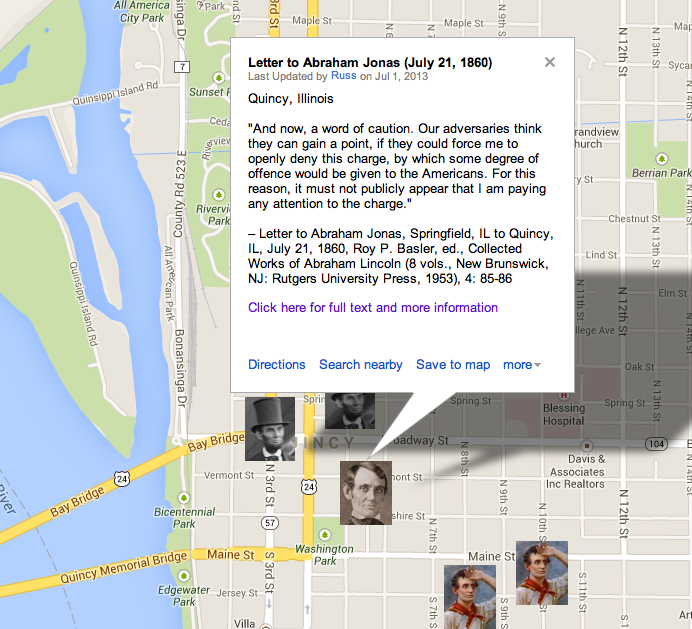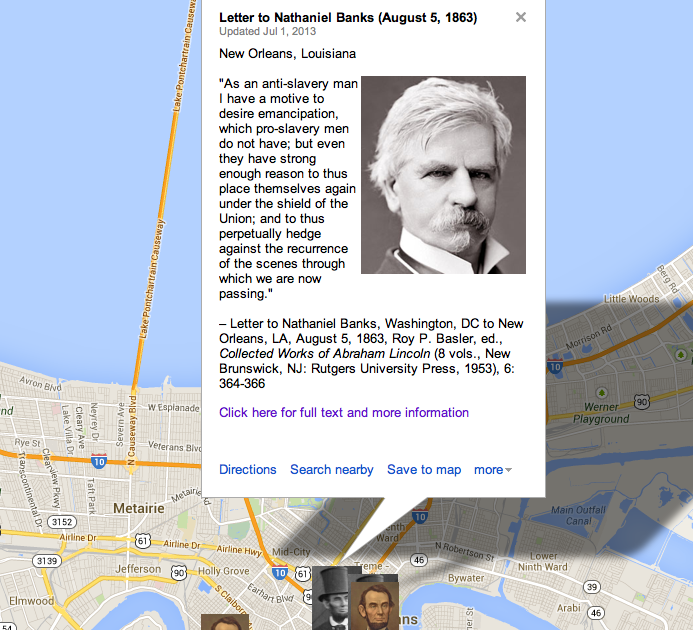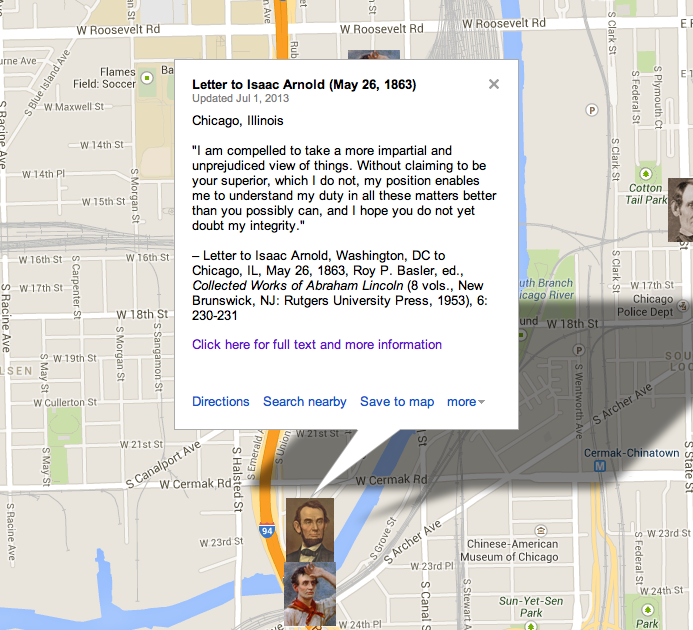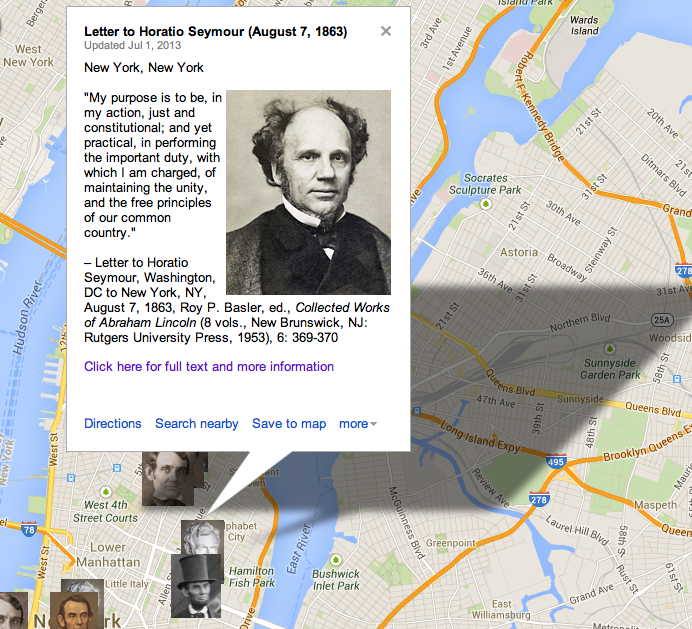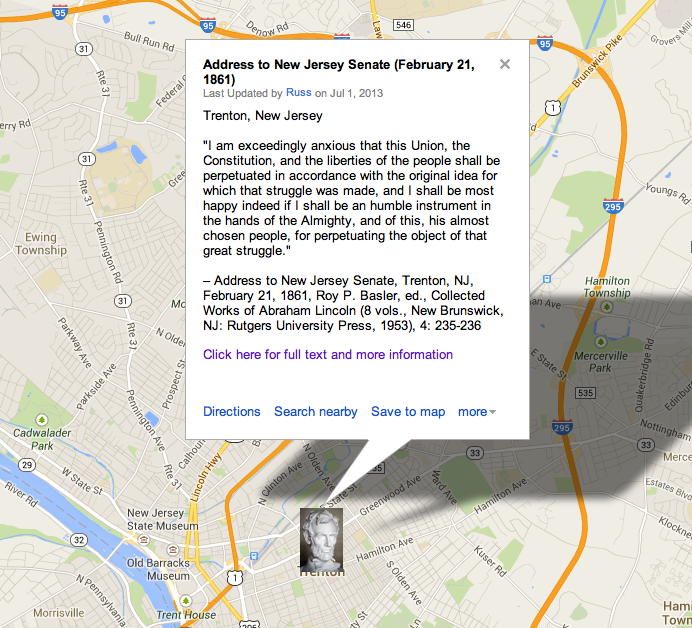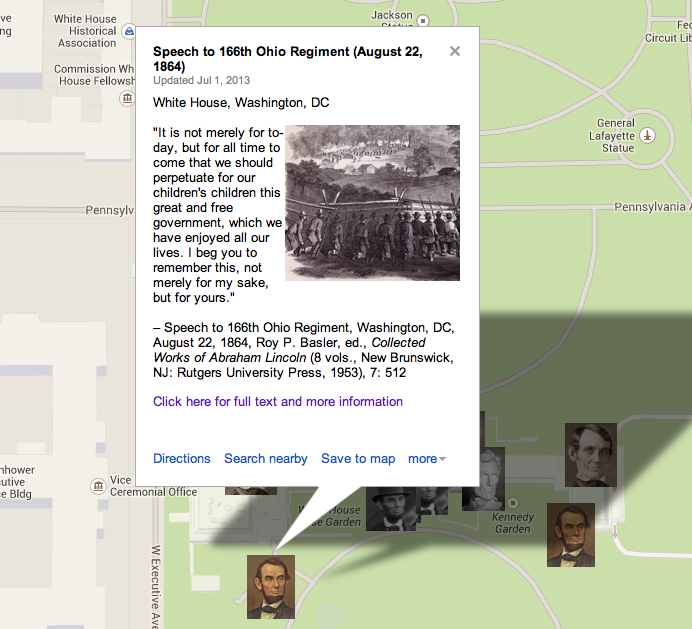Ranking
#126 on the list of 150 Most Teachable Lincoln Documents
Annotated Transcript
On This Date
HD Daily Report, February 22, 1861
The Lincoln Log, February 22, 1861
Custom Map
How Historians Interpret
“The president-elect walked out of Independence Hall through the Chestnut Street door into the overcast day. He ascended a six-foot-high wooden platform and faced the dense crowd. Lincoln stood in his overcoat, bareheaded, holding his top hat in his good, left hand, while Tad Lincoln fidgeted on the edge of the platform to his left. Abraham Lincoln briefly addressed the crowd and raised a new thirty-four-star flag in honor of the admission of Kansas to the Union. (Some Philadelphians said that the flag was a last-minute affair and had the wrong number of stars). As the flag rose above the Hall’s eves, it caught a stiff breeze and flew taut in the wind. Later that day at the state capitol building in Harrisburg, Lincoln told the Pennsylvania General Assembly that the success of the flag-raising ceremony that morning in Philadelphia augured well for the Union. ‘When, according to the arrangement, the cord was pulled and it flaunted gloriously to the wind without an accident, in the bright flowing sunshine of the morning, I could not help hoping that there was in the entire success of that beautiful ceremony at least something of an omen of what is to come.’”
— Bradley R. Hoch, “Looking for Lincoln’s Philadelphia: A Personal Journey from Washington Square to Independence Hall,” Journal of the Abraham Lincoln Association 25, no. 2 (2004), 59-10.
“Other considerations doubtless influenced Lincoln as he contemplated a long, taxing, slow journey to the nation’s capital. In selecting a cabinet, he told Thurlow Weed, he ‘had been much embarrassed” because of ‘his want of acquaintance with the prominent men of the day.’ The train trip would allow him to meet leading Republicans outside Illinois and consult with them about patronage and policy matters. Moreover, he might inspire the people he addressed in Indiana, Ohio, Pennsylvania, New Jersey, and New York with the same kind of confidence that he had inspired among juries and voters in the Prairie State. Lincoln understood that the voters who elected him were eager to see what he looked like, and he was willing to satisfy their curiosity.”
–Michael Burlingame, Abraham Lincoln: A Life (2 volumes, originally published by Johns Hopkins University Press, 2008) Unedited Manuscript by Chapter, Lincoln Studies Center, Volume 2, Chapter 19 (PDF), 2069.
NOTE TO READERS
This page is under construction and will be developed further by students in the new “Understanding Lincoln” online course sponsored by the House Divided Project at Dickinson College and the Gilder Lehrman Institute of American History. To find out more about the course and to see some of our videotaped class sessions, including virtual field trips to Ford’s Theatre and Gettysburg, please visit our Livestream page at http://new.livestream.com/gilderlehrman/lincoln
Searchable Text
Mr. Speaker of the Senate and also Mr. Speaker of the House of Representatives, and Gentlemen of the General Assembly of the State of Pennsylvania, I appear before you only for a very few brief remarks in response to what has been said to me. I thank you most sincerely for this reception, and the generous words in which support has been promised me upon this occasion. I thank your great Commonwealth for the overwhelming support it recently gave—not me personally—but the cause which I think a just one, in the late election. [Loud applause.]
Allusion has been made to the fact—the interesting fact perhaps we should say—that I for the first time appear at the Capitol of the great Commonwealth of Pennsylvania, upon the birthday of the Father of his Country. In connection with that beloved anniversary connected with the history of this country, I have already gone through one exceedingly interesting scene this morning in the ceremonies at Philadelphia. Under the kind conduct of gentlemen there, I was for the first time allowed the privilege of standing in old Independence Hall, [enthusiastic cheering], to have a few words addressed to me there and opening up to me an opportunity of expressing with much regret that I had not more time to express something of my own feelings excited by the occasion—somewhat to harmonize and give shape to the feelings that had been really the feelings of my whole life.
Besides this, our friends there had provided a magnificent flag of the country. They had arranged it so that I was given the honor of raising it to the head of its staff [applause]; and when it went up, I was pleased that it went to its place by the strength of my own feeble arm. When, according to the arrangement, the cord was pulled and it flaunted gloriously to the wind without an accident, in the light [bright] glowing sun-shine of the morning, I could not help hoping that there was in the entire success of that beautiful ceremony, at least something of an omen of what is to come. [Loud applause.] Nor could I help, feeling then as I often have felt, that in the whole of that proceeding I was a very humble instrument. I had not provided the flag; I had not made the arrangement for elevating it to its place; I had applied but a very small portion of even my feeble strength in raising it. In the whole transaction, I was in the hands of the people who had arranged it, and if I can have the same generous co-operation of the people of this nation, I think the flag of our country may yet be kept flaunting gloriously. [Enthusiastic, long continued cheering.]
I recur for a moment but to repeat some words uttered at the hotel in regard to what has been said about the military support which the general government may expect from the Commonwealth of Pennsylvania, in a proper emergency. To guard against any possible mistake do I recur to this. It is not with any pleasure that I contemplate the possibility that a necessity may arise in this country for the use of the military arm. [Applause.] While I am exceedingly gratified to see the manifestation upon your streets of your military force here, and exceedingly gratified at your promise here to use that force upon a proper emergency, while I make these acknowledgments, I desire to repeat, in order to preclude any possible misconstruction, that I do most sincerely hope that we shall have no use for them—[loud applause]—that it will never become their duty to shed blood, and most especially never to shed fraternal blood. I promise that, (in so far as I may have wisdom to direct,) if so painful a result shall in any wise be brought about, it shall be through no fault of mine. [Cheers.]
Allusion has also been made, by one of your honored Speakers, to some remarks recently made by myself at Pittsburg, in regard to what is supposed to be the especial interest of this great Commonwealth of Pennsylvania. I now wish only to say, in regard to that matter, that the few remarks which I uttered on that occasion were rather carefully worded. I took pains that they should be so. I have seen no occasion since to add to them or subtract from them. I leave them precisely as they stand; [applause] adding only now that I am pleased to have an expression from you, gentlemen of Pennsylvania, significant that they are satisfactory to you.
And now, gentlemen of the General Assembly of the Commonwealth of Pennsylvania, allow me again to return to you my most sincere thanks.
[Mr. Lincoln took his seat amid rapturous and prolonged cheering.]

